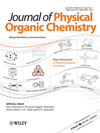
JOURNAL OF PHYSICAL ORGANIC CHEMISTRY
Scope & Guideline
Pioneering insights into the dynamics of organic materials.
Introduction
Aims and Scopes
- Theoretical and Computational Chemistry:
The journal extensively publishes articles utilizing theoretical and computational methods, such as Density Functional Theory (DFT), to investigate molecular structures, reaction mechanisms, and properties of organic compounds. - Experimental Organic Chemistry:
Contributions include experimental studies that elucidate reaction mechanisms, kinetics, and the synthesis of novel organic compounds, often linking experimental results with theoretical predictions. - Intermolecular Interactions:
Research on non-covalent interactions, including hydrogen bonding, π-π stacking, and other molecular interactions, is a significant focus, providing insights into molecular recognition and assembly. - Organic Materials and Applications:
The journal explores the development and characterization of organic materials for applications in fields such as photovoltaics, sensors, and catalysis, often emphasizing structure-property relationships. - Mechanistic Studies:
Papers often detail mechanistic studies of organic reactions, including Diels-Alder reactions, cycloadditions, and various catalytic processes, highlighting the dynamic nature of chemical transformations.
Trending and Emerging
- Sustainable Chemistry and Green Processes:
There is a marked increase in research focused on sustainable methods for organic synthesis, including the use of renewable resources, green solvents, and catalytic processes that minimize environmental impact. - Machine Learning and Data-Driven Approaches:
The incorporation of machine learning techniques in predicting chemical reactivity and optimizing synthetic pathways is gaining traction, indicating a trend towards computational efficiency and innovation in organic chemistry. - Intermolecular Interactions and Molecular Recognition:
An increasing number of studies are dedicated to understanding intermolecular interactions, which play a crucial role in molecular recognition and self-assembly, reflecting a growing interest in supramolecular chemistry. - Advanced Materials for Energy Applications:
Research on organic materials for energy conversion and storage, particularly in the context of solar cells and batteries, is emerging as a prominent theme, aligning with global sustainability goals. - Hybrid Experimental-Theoretical Studies:
There is a growing trend towards hybrid studies that combine experimental findings with theoretical predictions, enhancing the understanding of complex chemical systems and their behaviors.
Declining or Waning
- Traditional Organic Reaction Mechanisms:
There appears to be a waning interest in classic reaction mechanisms that do not incorporate modern computational techniques. Research focusing solely on established mechanisms without new insights or methodologies is less prevalent. - Synthetic Methodologies without Theoretical Support:
Synthetic studies that do not engage with theoretical frameworks or computational support seem to be declining. The trend favors integrated approaches that combine synthesis with computational analysis. - Generalized Organic Chemistry Topics:
Broader topics in organic chemistry that lack a specific physical chemistry angle or innovative computational approaches are becoming less common, as the journal increasingly prioritizes manuscripts that integrate both experimental and theoretical insights.
Similar Journals

JOURNAL OF THE INDIAN CHEMICAL SOCIETY
Showcasing the Evolution of Chemical Sciences since 1973Journal of the Indian Chemical Society, published by Elsevier, stands as a cornerstone in the field of chemistry, particularly representing the rich chemical research emanating from India.
With a significant history dating back to its establishment, this journal encompasses diverse disciplines including Drug Discovery, Electrochemistry, Inorganic Chemistry, Organic Chemistry, and Physical and Theoretical Chemistry, reflecting the evolving landscape of chemical sciences.
Despite being positioned in the Q3 category across multiple quarters, the journal demonstrates promising rankings in various chemistries, highlighting its commitment to advancing the knowledge and application of chemical sciences. While currently not available as an open access journal, the Journal of the Indian Chemical Society is dedicated to providing a platform for high-quality research that fosters innovation and collaboration among researchers, professionals, and students worldwide.
With its continuous publication from 1973 to the present, it serves as an essential repository for cutting-edge findings and developments in chemistry, striving to connect academia with industry and practice.
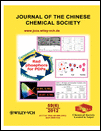
JOURNAL OF THE CHINESE CHEMICAL SOCIETY
Fostering Knowledge in the Evolving World of ChemistryJOURNAL OF THE CHINESE CHEMICAL SOCIETY, published by WILEY-V C H VERLAG GMBH, is a vital resource in the field of chemistry, focusing on a broad array of topics pertinent to general chemistry and its advancing sub-disciplines. Established in 1954 and running through 2024, this journal serves as a significant platform for the dissemination of high-quality research, showcasing innovative findings and developments within the chemical sciences. With its Q3 category ranking and positioning at Rank #203 in General Chemistry per Scopus, it reflects the journal's commitment to research excellence and impact. While not an open-access publication, it ensures accessibility to a global audience, making it an essential tool for researchers, professionals, and students alike seeking to stay informed and engaged in the evolving landscape of chemistry.
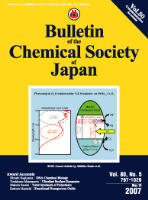
BULLETIN OF THE CHEMICAL SOCIETY OF JAPAN
Exploring Frontiers: Pioneering Research in Chemical SciencesBULLETIN OF THE CHEMICAL SOCIETY OF JAPAN, published by the esteemed Chemical Society of Japan, serves as a pivotal platform for the dissemination of cutting-edge research in the multifaceted field of chemistry. With an ISSN of 0009-2673 and an E-ISSN of 1348-0634, this journal has been integral in fostering the growth of chemical sciences globally since its inception in 1965. The journal holds an impressive Q2 ranking in the Chemistry (miscellaneous) category, indicating its relevance and influence within the academic community, as reflected by its Scopus rank of #104/408, placing it in the 74th percentile. Although it is not an open-access journal, its rich content, which spans a wide range of topics in general chemistry, remains highly valued by researchers, professionals, and students alike, affirming its crucial role in advancing both theoretical knowledge and practical applications in chemistry. As it converges towards 2024, the bulletin continues to uphold its commitment to excellence in scientific communication and research dissemination in Japan and beyond.
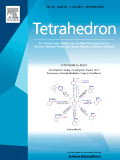
TETRAHEDRON
Pioneering insights in organic chemistry and biochemistry.TETRAHEDRON, published by Pergamon-Elsevier Science Ltd, is a leading peer-reviewed journal that has been pivotal in advancing the fields of Biochemistry, Drug Discovery, and Organic Chemistry since its inception in 1957. With an ISSN of 0040-4020 and an E-ISSN of 1464-5416, this journal provides a platform for the dissemination of cutting-edge research and innovative methodologies that contribute significantly to the scientific community. Recognized for its rigorous editorial standards, TETRAHEDRON has been categorized in the Q3 quartile for 2023 across its relevant fields, reflecting its solid impact within the scientific sphere. Despite the current absence of Open Access options, the journal continues to engage a diverse readership, offering invaluable insights and advancements that fuel both academic and industrial applications. With an ongoing commitment to excellence, TETRAHEDRON remains an essential resource for researchers, professionals, and students aiming to stay at the forefront of chemistry and biochemistry research.

JOURNAL OF CHEMICAL CRYSTALLOGRAPHY
Illuminating the structures that shape our understanding of matter.Welcome to the Journal of Chemical Crystallography, a prominent publication dedicated to the advancement of knowledge in the fields of chemical crystallography, general chemistry, and condensed matter physics. Published by Springer/Plenum Publishers, this journal provides a critical platform for researchers, professionals, and students to disseminate and access innovative research findings and methodologies from 1994 to 2024. With an ISSN of 1074-1542 and E-ISSN 1572-8854, the journal currently holds a Q4 quartile ranking in both Chemistry and Condensed Matter Physics, reflecting its broadening scope and niche significance within the scientific community. While it operates under a traditional access model, it endeavors to promote high-quality research that advances theoretical and practical aspects of crystallography, making it an essential resource for those involved in these dynamic disciplines. Join us as we explore the intricate world of chemical structures and their properties, bridging gaps between chemistry and physics.
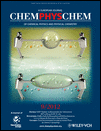
CHEMPHYSCHEM
Pioneering Research at the Intersection of Chemistry and PhysicsCHEMPHYSCHEM, published by WILEY-V C H VERLAG GMBH in Germany, stands as a pivotal resource for researchers and professionals in the fields of Atomic and Molecular Physics, as well as Physical and Theoretical Chemistry. With a commendable impact across its converged years from 2000 to 2024, the journal is categorized in the second quartile (Q2) for both aforementioned fields according to the 2023 metrics, underscoring its significance in advancing scientific dialogue and research. CHEMPHYSCHEM is committed to disseminating high-quality, peer-reviewed research articles that delve into the intricate interplay between chemistry and physics, making it an essential read for students and experts alike. The journal does not currently offer open access options, allowing for focused scholarly discussions that cater to the academic community's needs. As reflected in its Scopus rankings, CHEMPHYSCHEM maintains respectable standings, ranking #84/224 and #90/189 in its respective categories, demonstrating its commitment to high-impact research and innovation.

HELVETICA CHIMICA ACTA
Fostering Collaboration in Chemical ResearchHELVETICA CHIMICA ACTA, published by WILEY-V C H VERLAG GMBH, stands as a pivotal journal in the fields of chemistry and chemical research. Established in 1918, this esteemed journal spans a diverse array of topics, including biochemistry, catalysis, drug discovery, inorganic and organic chemistry, as well as physical and theoretical chemistry. With influence reflected in its noteworthy Q2 and Q3 quartile rankings across these categories as of 2023, HELVETICA CHIMICA ACTA continues to capture the interest of the global scientific community. Although not an open-access journal, it remains accessible through various academic institutions, ensuring broad reach and collaboration opportunities. Researchers, professionals, and students alike will find its meticulously peer-reviewed articles critical for advancing knowledge and fostering innovation within the chemical sciences. As the journal converges toward 2024, it remains committed to publishing high-quality, impactful research that supports the evolution of chemistry across its multifaceted disciplines.

JOURNAL OF CHEMICAL RESEARCH
Advancing Chemical Knowledge, One Study at a Time.JOURNAL OF CHEMICAL RESEARCH, published by SAGE PUBLICATIONS LTD, serves as a pivotal platform for scholars and practitioners in the field of Chemistry. With its ISSN 1747-5198 and E-ISSN 2047-6507, this journal has established itself as a reliable source of innovative research since its inception in 2000. The journal's comprehensive scope encompasses various facets of chemical research, providing a broad spectrum of articles that foster scientific advancement and technological innovation. Ranked in the Q3 tier of miscellaneous chemistry journals in 2023, with a Scopus rank of #246 out of 408, it represents a solid outlet for emerging and established researchers alike. Although currently not an open-access journal, its rigorous peer-review process ensures that only high-quality studies are published, catering to the academic and professional community's demand for credible and impactful findings. Positioned in the vibrant research landscape of the United Kingdom, the JOURNAL OF CHEMICAL RESEARCH is dedicated to expanding the frontiers of chemical sciences and is an essential resource for anyone committed to advancing this dynamic field.
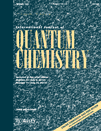
INTERNATIONAL JOURNAL OF QUANTUM CHEMISTRY
Fostering Breakthroughs in Quantum Chemical ScienceInternational Journal of Quantum Chemistry is a distinguished scholarly publication that has been at the forefront of advancements in the realm of quantum chemistry since its inception in 1967. Published by Wiley in the United States, this journal holds a significant place in the academic community, currently indexed in the Q3 quartile across various categories including Atomic and Molecular Physics, Condensed Matter Physics, and Physical and Theoretical Chemistry. With an ISSN of 0020-7608 and an E-ISSN of 1097-461X, the journal offers a platform for researchers and professionals to disseminate cutting-edge findings in quantum chemical research. While it operates under a traditional subscription model, the journal remains committed to enhancing the visibility of its contributions within the scientific community. With a convergence of research that spans from 1967 to 2024, the International Journal of Quantum Chemistry is pivotal for anyone looking to advance their understanding and application of quantum principles in chemistry, providing valuable insights into the microscopic interactions that govern matter and its properties.
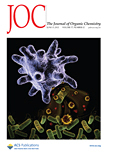
JOURNAL OF ORGANIC CHEMISTRY
Elevating Research Standards in Organic ChemistryJournal of Organic Chemistry, published by the American Chemical Society, is a prestigious peer-reviewed journal dedicated to advancing the field of organic chemistry. With an ISSN of 0022-3263 and an E-ISSN of 1520-6904, this journal has established itself as a key platform for disseminating high-quality research since its inception in 1936. Residing in the Q2 category for Organic Chemistry as of 2023, it ranks #64 out of 211 in Scopus, positioning itself within the top 69th percentile of its field. Researchers and professionals can access vital findings and innovative methodologies that drive the understanding and application of organic chemical principles. Although the journal is not open access, it remains a crucial resource in academia and industry, contributing significantly to the scientific community's knowledge base. For detailed insights and cutting-edge research, the journal continues to be an essential read for those engaged in the dynamic and evolving landscape of organic chemistry.